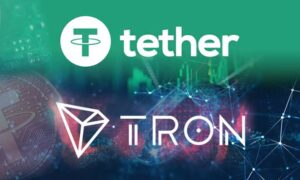
In the digital age, the concept of identity is evolving rapidly. As we increasingly rely on online services for everything from banking to social interactions, the need for secure and efficient digital identities has become paramount. Blockchain technology is poised to transform how we manage digital identities, offering a glimpse into a future where identity is more secure, private, and user-controlled.
Current Challenges in Digital Identity
Traditional systems of digital identity are fraught with issues:
1. Centralization: Most identity systems rely on central authorities, like governments or large corporations, to manage and verify identities. This centralization poses risks of data breaches and misuse.
2. Fragmentation: Users often have multiple identities across various platforms, leading to a fragmented experience and the repeated sharing of personal information.
3. Privacy Concerns: Centralized databases of personal information are attractive targets for hackers, raising concerns about privacy and data security.
4. Identity Theft: Current systems are vulnerable to identity theft, where bad actors use stolen information to impersonate others.
Blockchain as a Solution
Blockchain technology, with its decentralized and immutable nature, offers a promising solution to these challenges. Here’s how blockchain can reshape digital identity:
1. Decentralization: By using a distributed ledger, blockchain removes the need for a central authority. Each user can control their identity without relying on a central entity, reducing the risk of mass data breaches.
2. Self-Sovereign Identity: Users can create and manage their identities directly. This self-sovereign model allows individuals to own and control their personal information and share only what is necessary, significantly enhancing privacy.
3. Interoperability: Blockchain-based identities can be used across various platforms and services, providing a seamless experience while maintaining a single, coherent identity.
4. Enhanced Security: The cryptographic principles underpinning blockchain ensure that personal information is securely stored and shared. Blockchain’s immutability also helps prevent tampering and unauthorized access.
5. Reduced Identity Theft: By using cryptographic keys and digital signatures, blockchain can make it extremely difficult for attackers to impersonate others, reducing the incidence of identity theft.
Implementations and Use Cases
Several initiatives and platforms are already exploring blockchain for digital identity:
–SelfKey: An identity management system that allows individuals and businesses to own, control, and manage their digital identity in a secure and decentralized manner.
– uPort: A platform that enables users to create self-sovereign identities and interact with decentralized applications (dApps) securely.
– Civic: Offers secure identity verification with the ability to store and share verified personal information on the blockchain.
– Sovrin: A global, decentralized identity network that aims to provide individuals with self-sovereign identity ownership.
These platforms illustrate the versatility of blockchain for digital identity, from personal data management to secure authentication processes.
Future Prospects
The future of digital identity on the blockchain looks promising, with several key trends expected to shape its development:
1. Increased Adoption: As awareness of privacy issues and data breaches grows, more individuals and organizations will turn to blockchain for secure identity solutions.
2. Regulatory Integration: Governments and regulatory bodies are likely to develop frameworks for blockchain-based identities, enabling broader acceptance and integration into public and private sector services.
3. Innovation in Privacy: Advances in cryptography, such as zero-knowledge proofs and homomorphic encryption, will further enhance the privacy features of blockchain-based identities.
4. Global Standards: The development of global standards for digital identities on the blockchain will facilitate interoperability and ensure that different systems can work together seamlessly.
Conclusion
Blockchain technology offers a transformative approach to digital identity, promising enhanced security, privacy, and user control. While challenges remain, including regulatory hurdles and technological maturity, the benefits of blockchain-based identities are compelling. As the technology evolves, it is set to redefine how we think about identity in the digital world, paving the way for a more secure and interconnected future.
As we move forward, the integration of blockchain into digital identity systems could be as revolutionary as the internet itself, offering a robust foundation for the next generation of digital interactions.






